College Admissions
College Admissions
Preparing for College
The Best College for You
What to Study
Applications
Education Options
Education Options
Private Universities
Public & State Universities
Community Colleges
Scholarships
Scholarships
African American Scholarships
Latino Scholarships
Native American Scholarships
Women Scholarships
College Grants
College Grants
Federal Grants
Merit Based Grants
Need Based Grants
Student Loans
Student Loans
Federal Student Loans
State Student Loans
No Co-signer Student Loans
Bad Credit Loans
Student Loan Consolidation
College Survival
College Survival
Financial Aid Tips
The Digital Student Blog
My first semester of college was an enormous wake-up call. For starters, the academic expectations were easily a shelf above those I had seen in high school.
But the greatest difference involved what I now call the level of hand-holding. As opposed to those wonderful and understanding high school teachers, my professors made only casual reminders of long-term assignments and they never postponed an exam simply because some students did not understand the material.
Simply stated, I made some mistakes my first semester that cost me dearly – by the time Christmas rolled around there wasn’t a single A to be found on my grade report and in at least two cases, classes that should have resulted in B’s had turned to C’s.
 Fortunately, I had greater expectations for myself. I also was a relatively fast-learner – I say relatively fast because it did take me one full semester to figure things out.
Fortunately, I had greater expectations for myself. I also was a relatively fast-learner – I say relatively fast because it did take me one full semester to figure things out.
Established students will likely find my missteps obvious but perhaps those of you starting your first semester can learn from my “Seven First-Semester Mistakes.”
Mistake 1. Failing to Realize You Are on Your Own
This one of course is one of those obvious ones for established students but it permeated my first semester of school.
The best thing about going to college is you finally are on your own. There will be no one nagging you about getting to bed at a certain hour or about spending too much time at the gym. No one, not even your resident assistant, will be hovering over you, asking you about whether or not your homework is done or when your next test is coming.
At the same time, the academic expectations begin with the very first class. Add to that fact that semesters are short on class time (much less frequent than in high school) and you soon learn that you have much greater work expectations between class sessions than you ever did in high school.
Still, the academics pale next to the expectation that you are, and will be, a responsible young adult. Ultimately, the nagging is replaced with a basic assumption that you are old enough to handle responsibilities without being reminded of them daily.
Mistake 2. Being Unorganized
Another major mistake I made was the failure to create a master schedule of my courses and the assignments for the semester. Though I did create a notebook with separate sections with each syllabus, I never synthesized the materials on one master calendar.
 The bottom line was that many times I got caught not looking far enough ahead. On more than one occasion I found myself running out of time as materials became due or test dates arrived.
The bottom line was that many times I got caught not looking far enough ahead. On more than one occasion I found myself running out of time as materials became due or test dates arrived.
That first semester I learned the importance of taking the entire syllabus for each course and plotting all daily assignments, major projects/papers and exams on one master calendar. Doing so in future semesters helped me to understand that while this Tuesday I might have had little to do, next Tuesday the expectations might be so great I would need to be up half the night to complete all that was expected.
Every Sunday night I would review the upcoming week in detail, then scan the expectations for the following two weeks to see what I should begin working on ahead of time. Of course, creating such a calendar is a time-consuming first task – but it was a life-saver in future semesters.
Mistake 3. Being Unorganized – Redux
The second organizational aspect related to retaining all materials for the semester in their appropriate notebook. Those materials included all the original handouts, the additional ones provided during the semester and all returned assignments, quizzes and tests.
On many occasions I spent five, ten or even fifteen minutes searching for a certain document that was on my desk somewhere. On other occasions, I actually lost some graded materials, papers I could have definitely used in preparation for final exams.
I learned that first semester that I would receive and produce more materials than I ever did in high school and that taking care of those materials when I received them saved countless hours of time over the course of a semester.
Mistake 4. Multiple Course Sections Are Available
Another element I learned the hard way was that at college you had choices as to which courses and sections you opted to take. You can pick classes according to your learning style as well as quality of teaching.
For example, lecture-based classes were not my forte and taking them on Tuesday and Thursday meant longer class periods and an even greater test of my attention span. Such classes were far more manageable for me following a Monday-Wednesday-Friday format.
Perhaps even more importantly, the multiple sections of courses means you do not have to put up with a low quality instructor. That first semester I mistakenly sucked it up and stuck out two such classes, both to my detriment.
College is difficult enough without having to try to deal with poor quality instruction or a disorganized professor. In such cases, even first semester freshman can seek another section of the course immediately.
Mistake 5. Thinking Your Dorm Room Is a Great Place to Study
The need for a quiet place to do some real studying is essential. Yes, most times you can work in your dorm room or the lounge, but no matter how good your roommates or dorm-mates are, even at the quietest moments there will be distractions.
 To get some real focused time you must find a place where you can truly disappear. I have heard some say you must find a cave somewhere on campus.
To get some real focused time you must find a place where you can truly disappear. I have heard some say you must find a cave somewhere on campus.
They exist – I found mine in the back stacks of the library. And you must use your place whenever you need to find some real quiet time.
Most importantly, you and only you, the young adult, can determine when such a time is needed.
Mistake 6. Asking for or Accepting Extensions
Because of my somewhat lackluster organizational skills, I remember struggling to complete one major paper for my Economics class. As I stated earlier, I simply had not plotted out an overview of the semester and all of sudden I seemed to be struggling to find the time to meet a group of expectations as final exams approached.
Naively, as the deadline for that major assignment drew near, I overheard a classmate discussing a possible extension with the professor. The professor offered some simple extension terms, one-third of a letter grade per class period (one period late, a B+ would drop to a B, two periods late that B+ would drop to a B-, etc.).
I convinced myself that the extension terms were reasonable and would help me. Given I had decent writing skills, I foolishly decided to take one additional week (three class sessions) to turn the paper in.
At the time I assumed my final product would earn an A or A- meaning at worst I would take home a B- or C+ for the paper, a good enough score to maintain the B average I had worked all semester for.
Evidently I wasn’t quite the writer I thought I was – remember the point about increased expectations earlier? The professor scored my original paper a B-, with the docking it became a C-, and because of the grading weight of the paper, my B average for the semester fell to a C+.
I learned the hard way to get my work done when it was due.
Mistake 7. Not Limiting the Social Scene
At college, social events occur virtually every night of the week. From athletic events to open-mic nights to movies there is always something available to do that seems more enticing than your studies.
Add to that the Thursday night party group, the students taking a less demanding academic program (and content with earning Cs in those courses) and you always have someone trying to get you to take a few hours off for some social activity.
Taking time from studies is critical to maintain an emotional balance. But if you are not careful, it is all too easy to get pulled away by your roommate or other dorm-mates at times when you really should be getting some much needed work done.
Remember there is always something social to do and someone you know will be doing it – that simply means you can skip specific social opportunities when work demands prevail as there will always be another fun thing to do tomorrow.
If you are a college sophomore or upperclassman, you have experienced the full-frontal assault of the end of the year dorm clean out.
Because some students have exams right through Friday afternoon, then have only until 12:00 p.m. Saturday to be out of their room, there is no time to appropriately deal with all the items in the dorm room or on-campus apartment. Not only is there simply too much accumulated stuff to fit all of it in your car without making multiple trips home, you simply don’t have the time to deal with breaking the stuff down so that it might fit.
 The result, loads of valuable items get tossed into the dumpster or in most cases by the end of the week, piled alongside an overflowing trash unit. Chairs, couches, tables, VCRs, and even television sets can be seen sitting on top of these containers or resting on the curb beside these huge bins.
The result, loads of valuable items get tossed into the dumpster or in most cases by the end of the week, piled alongside an overflowing trash unit. Chairs, couches, tables, VCRs, and even television sets can be seen sitting on top of these containers or resting on the curb beside these huge bins.
Perhaps the most appalling aspect is the realization that the space in your car is already spoken for yet you are now witness to literally piles of items that you would scoff up in a minute if it were the beginning of the school year.
Schools and Students Taking Action
More and more, as green-eyed students across the country become aware of the earth and the need for greater sustainability, recycling programs have started to emerge for this end of the year clean out. The goal is simple: reduce the number of reusable items heading to a landfill or transfer station and get them into the hands of another potential user.
There are many successful ways to deal with the process. One simple step is for a group of students to locate a place for storage of viable items, especially the larger units such as mini-refrigerators and other electronic gear. Then, using a group of student volunteers, these unwanted items are collected and taken to the storage facility to be sorted out.
The following fall, those very same items are put up for sale to the incoming students at the school. Any collected funds that remain after the costs of storage have been taken care of are either donated to worthy charities or to the school’s nonprofit sustainability organization to further sustain a school’s green mission (if one exists).
Another common method of dealing with the leftover items is to involve community organizations and use them to solicit volunteers for all the handling tasks as well as the storage of items. Instead of selling them to students, the collected items can be sold in a massive community yard sale. Later, the proceeds from any sales can then be divided among the nonprofit groups according to the time each specific organization puts into collecting and selling the items.
Want to Start a Program?
Many other programs are underway with variations on these themes. In certain instances, students can simply leave unwanted items in their dorm room where they will be collected later.
 Still, there are a number of schools where the idea has not caught on.
Still, there are a number of schools where the idea has not caught on.
If you are interested in getting such a program started at your university, a nonprofit called Dump and Run helps interested groups. They can offer ideas regarding item collection, donation and storage, as well as appropriate ways of handling the cash that comes from selling the collected materials.
If the end of the 2009 school year has come and gone and your school still is not on board, it would make a perfect project for next year. Students interested in starting a program at their school can contact Dump and Run for assistance and advice.
Ultimately, the end-of-the-school-year recycling program is a true win-win. No student ever feels good about throwing such material in a dumpster. And our landfills/transfer stations are already strapped with mountains of trash.
There has been a long tradition of students from European countries taking a year off from school to work and travel. The year away, dubbed a gap year, has customarily been taken upon the completion of high school and prior to starting college.
The number of Americans taking time to work and travel has always been far less. In fact, the concept on this side of the pond tends to be associated only with upper-middle-class students from private schools.
But amidst the worst economic recession in decades, some are suggesting that it may well be time for more students to give greater consideration to the gap-year experience. Add to that fact the potential of a revamped financial aid system and it is clear that the gap year concept could well be a great choice for many more Americans this year.
Benefits of a Gap Year
 When considering a gap year, most students envision using the time to travel and to gain additional work experience. Occasionally, some individuals also seek to improve their academic preparation during their year away from school.
When considering a gap year, most students envision using the time to travel and to gain additional work experience. Occasionally, some individuals also seek to improve their academic preparation during their year away from school.
The benefits of a gap year are well-documented. Students taking a year off before entering college “mature earlier than their peers who come straight to college from high school.” Taking the time to travel or work full-time will expose students to a number of challenges that are distinct from those experiences one obtains in the school setting. The result is the chance to develop additional personal skills, making it easier for you to handle the social and intellectual stresses that come with college demands.
In addition, students who take a gap year are able to get a better grip on what it is they want to do with the rest of their life. A gap year is particularly helpful to students who are unsure where they want to attend school or the course of study they want to pursue.
Experiencing a gap year enables students to explore different job options, a process that ensures they are able to better determine their choice of college major. In many instances, the gap year also helps a student decide if college is really in the cards for them. A year of work and answering to a supervisor can give a person a new perspective regarding four years of additional study.
Lastly, if students are concerned about their overall academic preparation, a gap year with a focus on sharpening academic skills can be exceedingly helpful. Taking a couple of adult education classes or community college courses are an inexpensive way to sharpen those math, writing and technology skills. They can also give students a taste of what the college environment will consist of, again helping a student make a more informed decision.
Effect of Financial Crisis
In writing for the NY Times, Johnathan D. Glater offers his thoughts as to how the economic recession and the proposed policies of the Obama administration could well make the gap year an even better choice for certain students this year.
President Obama’s college proposals, legislation that offers “the most sweeping changes in federal college aid programs in decades” according to Glater, include significant increases in aid for needy students. If passed, the legislation would offer more fixed rate, low-interest student loans as well as larger grants for those students who qualify.
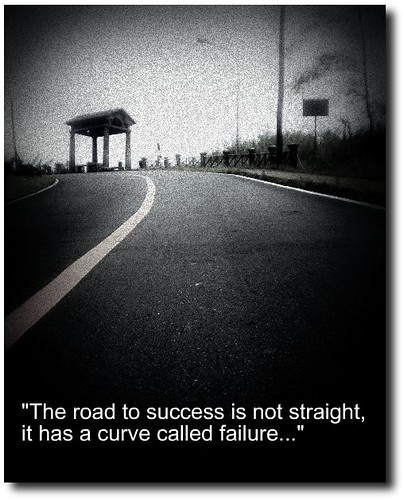 Glater notes the changes must first go through Congress. Therefore, if they are to be approved, the expanded financial support for students would not take effect until July 2010. Ultimately, waiting a year could put a student in a position to access these additional funds.
Glater notes the changes must first go through Congress. Therefore, if they are to be approved, the expanded financial support for students would not take effect until July 2010. Ultimately, waiting a year could put a student in a position to access these additional funds.
Though likely to be a relatively small increase, Glater goes on to note that if the student applying represents the oldest in the family, waiting another year could place that individual in college with a younger sibling or siblings for more overlapping years. With benefits also contingent on the number of family members in school at the same time, waiting a year could well positively impact a family’s overall outside support significantly.
In addition, Glater notes that asking to defer admission for a year, something colleges generally are very willing to do, could be critical for those families with parents worried about their current job security or who have been negatively impacted by the financial downturn. Irrespective of the job issue, Glater notes that all families will face greater challenges securing credit and college loans in the current environment.
Add to that fact the impact of the economic downturn on everyone’s college savings plans and now might simply not be the time to begin taking on the substantial costs associated with attending college.
Will Times Be Better?
Of course, there is the possibility that the Obama plan will not pass Congress. There is also the potential that our economic funk may not be over. Certainly, while everyone is hopeful that better times are just around the corner, we are experiencing a more severe economic downturn than anyone could have previously imagined.
Glater does offer a balanced view, quoting Seth Allen, dean of admission and financial aid at Grinnell College in Iowa:
“There’s a real possibility things could be worse,” warn Allen. “What if the markets have actually dropped further, and the kind of economic news coming out suggests that unemployment will continue to rise and endowments for the foreseeable futures will remain flat?”
In other words, the competition for funds could be even greater a year from now. Therefore, today’s economic difficulties should not cause students to consider a gap year if a student has not considered the idea previously.
Is the Gap Year Right for You?
 Clearly, taking a year off from school has documented benefits. Another year to gain experience and to earn some additional funds are two great ways to help students be better prepared for the rigors of college.
Clearly, taking a year off from school has documented benefits. Another year to gain experience and to earn some additional funds are two great ways to help students be better prepared for the rigors of college.
Such a year can help students confirm whether or not college is truly the next step for them. It can also be extremely helpful towards clarifying their potential career goals and therefore shed great light on their choice of college and major.
And a year away from full-time school can also be used to help improve academic preparation should a student be in need of such.
One may then add to these traditional benefits the two points raised by Glater, the issues brought about by our current economic downturn and the aid proposals of President Obama. Collectively, they represent a strong basis for considering a gap year.
However, making such a choice based solely on Glater’s financial concerns may well be nothing more than a gamble. Therefore, students should seriously consider a gap year only if they believe that the experience will better prepare them for their future, whether that future will consist of a move straight into the workforce or the pursuit of a college diploma.
Simply stated, a gap year is not for everyone. But the rationale for taking one has grown given the recent economic developments in our country.
Editors Note: For more on the gap year concept including help with determining possible gap year experiences, peruse one of the many Gap Program websites available on the web. A search on the phrase gap year will provide a wealth of sites that discuss the concept further while a search of gap year programs will bring you to sites that assist students with a gap year experience.
Flickr photos courtesy of Cats-Eye-View, tacitreqieum and Chichacha.
Over the past year we have seen a number of posts that have taken issue with the importance of earning a college degree.
The Great College Hoax
In early February, Kathy Kristof, writing for Forbes.com, penned a piece called “The Great College Hoax.” It is an article that calls into question the linear relationship between a college degree and future prosperity.
To prove her point, Kristof highlights the story of Joel Kellum and Jennifer Coultas. Kellum, now 40, “did everything he was supposed to do to get ahead in life ” according to Kristof.
“He worked hard as a high schooler, got into the University of Virginia and graduated with a bachelor’s degree in history” before being “accepted into the California Western School of Law.”
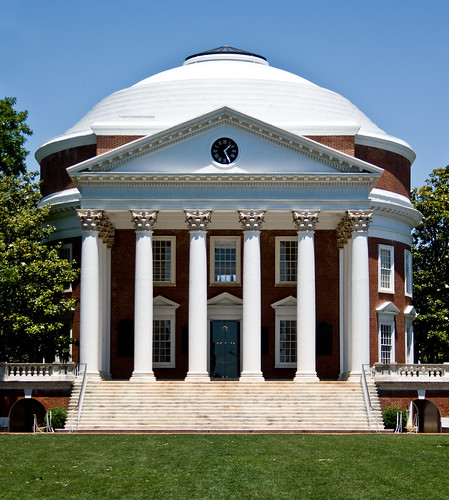 “Kellum couldn’t swing the $36,000 in annual tuition with financial aid and part-time work. So he did what friends and professors said was the smart move and took out $60,000 in student loans. Kellum’s law school sweetheart, Jennifer Coultas, did much the same.
“Kellum couldn’t swing the $36,000 in annual tuition with financial aid and part-time work. So he did what friends and professors said was the smart move and took out $60,000 in student loans. Kellum’s law school sweetheart, Jennifer Coultas, did much the same.
“By the time they graduated in 1995, the couple was $194,000 in debt. They eventually married and each landed a six-figure job. Yet even with Kellum moonlighting, they had to scrounge to come up with $145,000 in loan payments. With interest accruing at up to 12% a year, that whittled away only $21,000 in principal. Their remaining bill: $173,000 and counting.”
America’s Most Overrated Product: the Bachelor’s Degree
It was last May that career counselor Marty Nemko penned his powerful critique, “America’s Most Overrated Product: the Bachelor’s Degree,” for The Chronicle. He too calls into question the unrelenting push to earn a college diploma.
“Among my saddest moments as a career counselor is when I hear a story like this: ‘I wasn’t a good student in high school, but I wanted to prove that I can get a college diploma. I’d be the first one in my family to do it. But it’s been five years and $80,000, and I still have 45 credits to go.'”
Though he too is focused on the potential to pile up debt in the process, Nemko is more forceful about the entire process of pursuing a degree. He goes on to add, “Perhaps worst of all, even those who do manage to graduate too rarely end up in careers that require a college education. So it’s not surprising that when you hop into a cab or walk into a restaurant, you’re likely to meet workers who spent years and their family’s life savings on college, only to end up with a job they could have done as a high-school dropout.”
One Thing You Don’t Need To Be An Entrepreneur: A College Degree
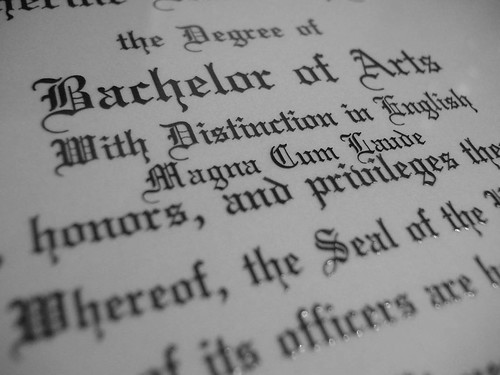 And most recently, venture capitalist Fred Wilson authored his “One Thing You Don’t Need To Be An Entrepreneur: A College Degree.” Wilson has much to say including:
And most recently, venture capitalist Fred Wilson authored his “One Thing You Don’t Need To Be An Entrepreneur: A College Degree.” Wilson has much to say including:
“I have learned that where someone went to college (or even if they didn’t go to college) has absolutely no correlation to whether they will be a good entrepreneur or not. I don’t pay attention to that part of a resume. I focus on what they’ve done in the work world, what they’ve shown they can do, and most importantly what they’ve done to date on that specific startup.”
Wilson points out a couple of real key facts about entrepreneurial life and that of other professions.
“Entrepreneurs don’t need degrees like lawyers and doctors do. They are credentialed by virtue of their track record. The first startup is hard but if they make that one work, they end up with something much better than a college degree. They have a notch in their belt. They’ve got a track record of success. Even if the first one is a failure, I’d say that they’ve got something more than a degree. They’ve shown they can start something from nothing, build a team, a product, and maybe even a business.”
A Change of Heart?
Perhaps you read these articles when they first appeared. If you did, then you likely had to be wondering, is the pursuit of a college diploma all it is cracked up to be.
If you did not read any of them when they first appeared but did read the highlights back to back to back as we just presented them, then you must now really be wondering. Is the dream of a college education really nothing more than a “Great Hoax?”
As life would have it, the answer is not quite so simple. The question is very complex and the answer varies from individual to individual and from situation to situation.
Not For Everyone
First it must be noted that a four-year college is not for everyone, not by a long shot. Even our sister education site has articulated that the idea that everyone should attend a four-year college “is a silly, misguided notion.”
If you are not truly interested in academics then it is hard to argue that you should spend the next four years of your life pursuing a bachelor’s degree. If reading and writing are not the ways you learn best, then four years of college are going to be a massive struggle.
The work demands associated with college study will be enormous and the intellectual challenges significant. And for the most part, the learning methodology will center on reading and writing, irrespective of the area of study. In a nutshell, you must have a strong academic background, an equally strong desire to succeed and the ability to learn from books and discussions.
 If instead, you learn best by doing, or by working with your hands, then you should consider something other than a four-year college and a bachelor’s degree. Look at one of the many two-year vocational schools that focus on a trade or a specific skill. These programs also have academic components, because the ability to read and write well are very important. But they will not be the core of the program – the trade or skill will form the major portion of your time.
If instead, you learn best by doing, or by working with your hands, then you should consider something other than a four-year college and a bachelor’s degree. Look at one of the many two-year vocational schools that focus on a trade or a specific skill. These programs also have academic components, because the ability to read and write well are very important. But they will not be the core of the program – the trade or skill will form the major portion of your time.
Not at all Costs
In addition to learning styles and goals, prospective students must understand the costs associated with higher education. Both Nemko and Kristof point to terrible stories of students racking up enormous debt in their pursuit of the coveted degree.
The friends and professors that advised Mr. Kellum and his wife to take out $60,000 in loans should not be called friends or advisers. Starting your careers with a combined debt approaching $200,000, as was the case with the Kellums, is indeed a recipe for disaster.
While earning that coveted diploma, students must be mindful of the debt they are incurring. The amount that is appropriate is dependent on future earnings. A prospective teacher will need to keep their debt much lower than say a person who is going to become a certified public accountant.
Ultimately, students must be careful not to mortgage their entire future by borrowing exorbitant sums of money while they are young.
Pursuing the Degree
When it comes to a summation of the responsible pursuit of a degree we turn to Daniel Tenner. He too has read “The Great College Hoax” and “One Thing You Don’t Need To Be An Entrepreneur” and the blogger has some great advice for prospective students:
“My opinion on the subject is simple: if you have a thirst for learning, and you don’t have to enter the workforce immediately (i.e. you can afford, somehow, a degree, without being financially irresponsible), then you absolutely should go to university, even if you have a start-up that you could work on right away. This is not because you need the degree for your future career, but because it’s a great thing to spend your next 4 years on.”
 With great wisdom, Tenner goes on to note several key points. First, “business ideas are a dime a dozen. Don’t worry about ideas. You’ll have just as many, if not more, ideas when you come out of college as when you went in.”
With great wisdom, Tenner goes on to note several key points. First, “business ideas are a dime a dozen. Don’t worry about ideas. You’ll have just as many, if not more, ideas when you come out of college as when you went in.”
Second, you can leave if you find that college is really not for you. If the learning approaches are simply not working for you or you do not have the academic preparation or the desire, then you can always decide to do something else.
However, for most students, including Tenner, college is an enjoyable way to spend four years. It is a place where many students first learn to be on their own yet do so while still having a significant support net around them. As the former student notes, college is essentially a “shelter where you can develop yourself.”
And most importantly, you will meet extremely interesting people (students and professors) even as you “learn things you would never have learned by yourself.” Tenner goes on to emphasize that college was the last place where he encountered people with the willingness and desire to teach him. Now the lessons come from the business world, and they, of course, now come in much harsher form.
The Importance of Higher Education
Earlier this week we noted the statistics related to the economic downturn and that the percentage of workers with a college degree who had been laid off was half of the national average. Many other articles point to the fact that those who earn a degree will earn substantially more over their lifetime.
A college degree does pay, provided one recognizes that the debt they accrue must be limited. But by a college degree, we mean the broadest set of options possible.
A technical, vocational, or associate’s degree also pays off. And in many instances, that form of degree is far more appropriate for specific individuals dependent upon their interests and life circumstances.
But even more than the financial piece, college can be a great place for students to learn about themselves and society as a whole. It is hard to argue against a place that helps students mature even as it serves to further develop their intellect.
When it comes to pursuing higher education, the key is not to get hung up on the four-year bachelor’s degree option as the only viable college experience or career preparation.
As for the question, “earning a college degree – is it really that important?” we finish with the words of Tenner who says it as well as anyone.
“If you can go to university without being financially irresponsible, then it is personally irresponsible not to.”
Flickr photos courtesy of H4NUM4N, Our Lady of Disgrace, McFlossy and laffy-4k.
Earlier this year we offered our recommendations for a green new year. More and more, students across America are beginning to realize that if we want to preserve this wondrous world we have been given we must commit ourselves to a greener lifestyle.
The Sustainable Classrooms Contract
A great example for all of us to emulate comes from the students and staff of St. Michael’s College in Colchester, Vermont. In an effort to get professors and students to practice sustainable living habits within the academic environment, Green Up SMC and the Environmental Council, along with a new Office of the Sustainability, are working on instituting “The Sustainable Classrooms Contract.”
The goal is to make sustainable living practices a fundamental habit. By making them a part of the higher education learning process, the organizations believe these habits will carry over into students’ and professors’ daily lives.
The contract is broken into two fundamental areas.
Primary Initiatives
 Offering a very short list of primary initiatives, these are easy to remember and implement.
Offering a very short list of primary initiatives, these are easy to remember and implement.
Secondary Initiatives
The secondary initiatives represent some large and small scale items:
Suggested Practice
While we would move the second secondary initiative to the top list in a heartbeat, we also like the overall philosophy of the sustainability contract. The folks at St. Michael’s note that all sustainability initiatives are suggestions and that each class can modify the contract to best fit their needs while still staying true to the purpose of this initiative. In simplest terms, the contract may be modified by professors and students alike.
 Yet another aspect that deserves mention is the recommendation that each student and professor sign on to the Sustainable Classrooms Contract for each and every class. But the sign on process may be initiated by a professor or by the students.
Yet another aspect that deserves mention is the recommendation that each student and professor sign on to the Sustainable Classrooms Contract for each and every class. But the sign on process may be initiated by a professor or by the students.
And finally, most importantly, as it is a contract, both parties are expected to live up to the document. Therefore, each has the responsibility to self-enforce the agreement.
Replicate the Idea
This simple idea represents a critical step in moving towards a more sustainable culture. It makes everyone aware of the need to change certain behaviors and begins the process, one small step at a time, towards preserving this wondrous planet.
Flickr photos courtesy of Tobo and Woodley Wonder Works
High school students looking to learn more about the college application, admissions and choice process have a great upcoming opportunity next month.
CollegeWeekLive, the world’s biggest virtual college fair, has been set for March 25th and 26th. Featuring more than 250 colleges and universities from around the world, the annual event is expected to see as many as 28,000 attendees.
What makes CollegeWeekLive so unique is that it offers all of the standard college fair information that students seek when attending such an event but does so in an online format. Therefore, from one’s home or school computer, a prospective college student has access to a wealth of information in a cost-effective and convenient manner.
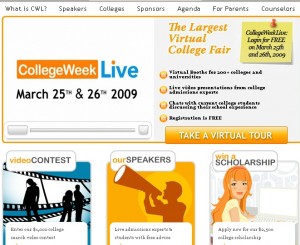 The bi-annual event (held each November and March) offers students access to some of the top experts in the field. Virtual fair attendees can watch admissions experts speak on SAT preparation, the application essay process and or how to pay for college. Attendees will also be able to ask various questions via live chats.
The bi-annual event (held each November and March) offers students access to some of the top experts in the field. Virtual fair attendees can watch admissions experts speak on SAT preparation, the application essay process and or how to pay for college. Attendees will also be able to ask various questions via live chats.
The event will also feature virtual booths for the various colleges taking part in the fair. These booths will offer student attendees electronic brochures, videos, webinars, and podcasts related to the school. In addition, students will have the opportunity to real-time Instant Message and/or video chat with admissions counselors and students from those institutions.
As for the specific, potentially-valuable presentations for students March 25th offers:
 On the second day, March 26th, scheduled topics and presenters include:
On the second day, March 26th, scheduled topics and presenters include:
More details on the proposed agenda as well as relevant links to some of the presenters are available on the CollegeWeekLive agenda page.
Though the program should be extremely worthwhile, as an added incentive to folks, College WeekLive will be giving away a brand new 13-inch aluminum MacBook to one lucky attendee of the fair! . There is a video contest and the chance to win a $2,500 scholarship to the college of your choice.
And if you attended the November CollegeWeekLive and are still a current high school student, you can also complete a survey that will make you eligible to win an iPod Touch or a $300 donation to the charity of your choice. High school seniors will find the link to their survey here while underclassmen will find a separate survey at this location.
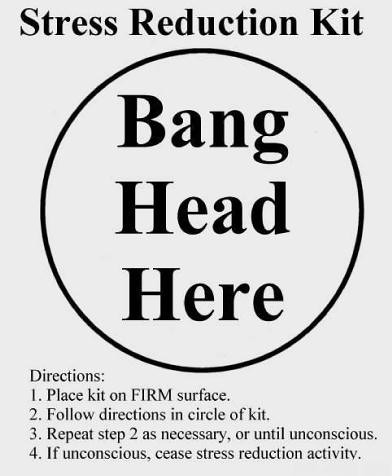
Facing a week with three prelims, a summary paper, and a class presentation? Then you are likely feeling a bit of stress.
Whereas once headbanging might have been the suggestion, now, thanks to the great world of YouTube, you are just a mouse click away from just the right stress reducer.
But be warned, these classics must be sipped slowly. Like fine wine, their sophistication means the taste may not emerge until the second or third glass from the same bottle.
A Silly Walk
The Monty Python crew was known for its clean mix of physical and intellectual comedy. One of the best is the sketch devoted to the Ministry of Silly Walks. If you have an upcoming important exam, take the few minutes to watch this gem. We even recommend you try one of these gaits as you walk to the test site so as to lighten the stressors. Of course, you really should find a partner to carry on the step, otherwise all the attention you draw might just be too much to bear.
Lumberjack Song
I’m a lumberjack and I’m OK also befits the crossdressing focus of Python. It is a catchy tune and the lyrics sung boisterously can certainly reduce anxiety. Of course, the beauty here is the creation of your own set of lyrics set to the tune, lyrics than you can return to time and again whenever it is time to calm those nerve ends.
Soccer Match
In one of the most brilliant of pieces, the Pythoners created this gem featuring the Germans and the Greeks. Using a taste of the old Steve Allen series where the writer would interview some historical figure in a talk show setting, this crafty video begs the question, who would be better at center-half, Aristotle or Socrates? Using a similar concept to help you remember any historical figures can make the mundane fun. We just prefer placing the subjects on the American football field where the thought becomes who plays quarterback and who in turn plays middle linebacker?
Argument Clinic
Of course, no Python review would be complete without visiting the Argument Clinic, with a quick early stop at Abuse. Here again a partner is critical. Either memorize the bit or simply wing it, just take ten minutes right before those exams are passed out to have an argument with your buddy. Score additional points if you can get beyond simple contradiction. We guarantee you will feel the butterflies emerging with every exchange.
Flickr photo courtesy of programwitch.
In today’s tough economic times, state universities are receiving a more thorough look from students who are searching for a quality program at an affordable price.
If you are one of the individuals looking at this option, one concern could be the sheer physical size of the school and the equally large numbers of students on state campuses. However, even if you are thinking of a small liberal arts college option, you might be surprised to learn that such focused study is likely available at your state university in the form of an Honors College.
James Madison Honors College
Featuring numerous study abroad programs and dual major options, James Madison Honors College first year students follow a common curriculum including two Madison courses: a year-long Writing course and a yearlong introductory course on Public Affairs. Under the auspices of Michigan State University, Madison offers students courses with as few as eight students and major options such as International Relations, Political Theory and Constitutional Democracy, Social Relations, and Comparative Cultures and Politics.
 However, students attending James Madison utilize the same admissions procedures and pay the same costs as students attending Michigan State University. Still the school has featured a number of Rhodes, Marshall, Truman and Fulbright Scholars and graduates seeking a higher degree at such prestigious institutions as Harvard, Yale, the University of Chicago, Stanford, Georgetown, Cornell, Columbia, Duke, and the London School of Economics.
However, students attending James Madison utilize the same admissions procedures and pay the same costs as students attending Michigan State University. Still the school has featured a number of Rhodes, Marshall, Truman and Fulbright Scholars and graduates seeking a higher degree at such prestigious institutions as Harvard, Yale, the University of Chicago, Stanford, Georgetown, Cornell, Columbia, Duke, and the London School of Economics.
Lauren E. Youngdahl, a 2004 graduate of the James Madison Honors College, indicates that the choice of JM represented a chance to experience the best college atmosphere possible.
“The appeal of James Madison was it was a ‘small’ college within a ‘big’ university,” explains Youngdahl. “So I could have, in my opinion, the best of both worlds.”
Her desire for a strong liberal arts background, one that focused on analytical thinking and writing was a key factor in her selection of James Madison.
From the small class sizes to the highly esteemed faculty members who are experts in their fields (no TA’s), the program delivered. She also noted the impact of high expectations of the professors regarding student work. Adding to the challenges were highly-motivated classmates, individuals who also pushed the work standards.
“I quickly learned there was no ‘skating’ by,” states Youngdahl. “And hard work was given a new definition.”
For her studies, Youngdahl was able to pursue several interests.
“I had interest in the International Relations major,” she explains. “I paired that with a Marketing degree from the Eli Broad Business School, something that was not available in any other program at MSU.”
Two other critical components of the program, the field experience and senior thesis also were key for the graduate.
“I played golf at MSU, so the best way to accommodate both my academics and athletics was to work as the Assistant Tournament Director for the Golf Association of Michigan,” states Youngdahl of her field experience. “I would say a majority of my classmates did internships with legislators, attorneys, etc. – which many of them then became.”
 “And, my senior year I had a class that was dedicated solely to writing a thesis. The subject was on the evolution of Asia as a world leader; and I did my paper on the Japanese automakers and their rise to success in the United States.”
“And, my senior year I had a class that was dedicated solely to writing a thesis. The subject was on the evolution of Asia as a world leader; and I did my paper on the Japanese automakers and their rise to success in the United States.”
The Honors College at the University of Maine
The Honors Program at the University of Maine is one of the oldest in the United States, having begun in the early 1930s within the College of Arts and Sciences. At that time, there were believed to be no more than a half a dozen such programs for undergraduates in the country.
Becoming a full-fledged college in 2002, The Honors College at the University of Maine is home to approximately 650 students. As with James Madison, its smallness is demonstrated by a fundamental commitment to investigate diverse academic areas and challenge students in a supportive intellectual environment, using a process that seeks always to engage fellow students and enthusiastic, distinguished faculty in thoughtful, provocative discussions.
The program features first- and second-year preceptorials, third-year tutorials, and like Madison culminates with a thesis. Its students also demonstrate a lengthy track record of success, being named Cooke Fellows along with Goldwater, Udall, and Smith Scholars.
Rachel Groenhout, now a graduate student in the Netherlands offers similar thoughts regarding her Honors College experience at the University of Maine in Orono right down to the reading and writing focus.
“I was invited to the Honors College at my University in the summer before freshman year,” explains the 2004 graduate. “I decided to give it a try because I would be able to take Honors Courses that would satisfy general education requirements that might otherwise be done through College English, Psychology, etc.
“The special Honors Sections featured a small class size (about 15 students) and a more active student experience: reading, discussing in class and weekly or monthly papers,” she adds. “This appealed to me far more than attending class in a lecture hall and only studying for a midterm and a final exam without doing anything in between.”
Similar expectations at Maine also had students completing some type of thesis senior year to earn their honors degree. The French major presented her research by authoring the work in that language.
“This was unquestionably the formative experience of my undergraduate career. For students going on to grad school, completing a first thesis with the supervision and the support of the Honors College staff is the ultimate preparation for more autonomous research work in graduate school.”
However, Groenhout insists those students with no initial interest in graduate study will also receive enormous benefit from the experiences.
“For those who don’t go on to graduate school, you’ll still have the satisfaction of having once written an academic publication. My master thesis is underway at the moment…and will probably be better than my Honors thesis…but I think no other thesis or dissertation will ever capture my heart and soul the way that the first one did.”
Groenhout offers one other caveat that students may well want to consider.
“In a time when more and more people are graduating from college, and grades are notoriously inflated, having completed an Honors degree gives your transcript and resume a little something extra,” she notes. “Whether you do it for personal satisfaction or to remain competitive on the job market, Honors is a win-win opportunity.”
The Economic Factor
 Professor Charlie Slavin, the Dean of the Maine Honors College, indicates that interest is up in the college. However, he is not certain that all of the increase comes because of the fiscal issues facing students currently.
Professor Charlie Slavin, the Dean of the Maine Honors College, indicates that interest is up in the college. However, he is not certain that all of the increase comes because of the fiscal issues facing students currently.
“As for now, it’s hard to say,” states Slavin. “We seem to have had a great deal of interest over the past year in the Honors College, but, again, there might be many reasons. We’ll probably know soon whether the current financial crisis causes precipitous changes in demand for or interest in the College.”
Still, there is little doubt that the Honors option is seen as a quality program that also carries with it great affordability. That concept is especially important to students who desire to continue on to graduate school.
“We always have anecdotal stories of students,” continues Slavin, “of those who enter with an eye already on professional schools (law, medicine). They want to be able to finish their undergraduate experience (more or less) debt-free while still having the credentials to compete well for graduate school acceptances. They know they will incur debt during that training.”
And as for why the experience of Honors College is so meaningful to so many students, Slavin offers his assessment.
“Our Honors Curriculum includes a major interdisciplinary core component that requires all of our students, regardless of their majors, to take intellectual risks,” states Slavin. “They are engaged in challenging academic inquiry outside their disciplines. I often refer to our engineers reading Plato and our artists studying the philosophy of quantum mechanics. This is the key to the honors concept.”
Honors Worthy of Consideration
In a Time magazine article from 2006, writer Nathan Thornburgh offered an assessment and rationale for considering state university honors colleges.
First, it may well be harder than ever to get into an Ivy League, but in presenting his eight strategies for kids and parents to use to find happiness beyond the ranks of the traditional elite schools, Thornburgh offers:
“Take the Honors Route – Big state schools trying to attract top students are increasingly establishing honors colleges. These schools within schools often feel like cloistered liberal-arts colleges but still have access to the superior resources of a large research university.”
For those who also love the athletic environment that a school can provide, Thornburgh adds:
“Another upside is that while you’re getting a more personalized education, you still have the chance to watch your school win a football game every once in a while.”
Slavin offers a similar assessment.
“It’s common in honors education to talk about ‘liberal arts college experience at a large university.’ I’m always a bit hesitant.
“It’s not the same, nor should it be,” insists Slavin. “Yes, there are some similarities: small classes, integrated curricula, closer personal attention. However, the real strength of our Honors College is the integration of those things with the cutting-edge research, and opportunities for students to be involved in this research, which takes place all across a major research University.”
Setting a New Trend
Cost-conscious students may want to think about bucking the elite trend, perhaps beginning a new pathway that represents a discerning consumer with a bent for both quality and value.
However, those who do so will definitely be in the minority at least for now.
“Our society still values name,” notes Slavin, a Princeton grad. “Regardless of education or credentials, there is an advantage to having a diploma with a certain name.”
Slavin notes the slow process of change.
“This is changing, more and more students from public institutions are winning major national fellowships (Rhodes, Truman, Goldwater, etc.) and getting acceptances to the most elite professional and graduate schools. But it’s hard to change people’s biases.”
Hard maybe, until you talk to students like Youngdahl and Groenhout. Listening to them, state university Honors Colleges appear to offer everything a student could want.
And most important for the cost-conscious student, they do so at a more affordable price.
A recent report card from the Josephson Institute paints current high school students in a very negative manner. Citing “entrenched habits of dishonesty” among young people, the survey of more than 30,000 high school students indicates that more students are lying, cheating, and stealing than ever before.
Ironically, we had a disillusioned student leave a comment on the site just after the report card was made public. Coming as a response to our article, The 11 Top Reasons Why Students Drop out of College, the writer not only revealed a significant level of discouragement, he offered a possible solution:
“I am Soooooooooo burned out of this entire experience!!! What would happen if I were to just say that I had the degree on my resume? Anyone ever tried that? How many employers actually check?”
Hopefully, it was a tongue-in-cheek response. But if it wasn’t……..
Honesty and Integrity
Whenever I hear someone propose such a solution, even when the option is thrown around in jest, I can’t help but turn to the very public and humiliating story of George O’Leary.
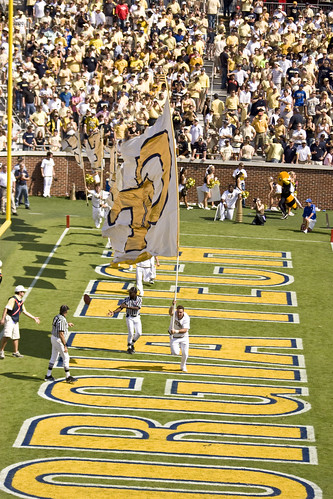 During a seven-year period, O’Leary resurrected a moribund Georgia Tech football program. Guiding the team to five winning seasons in his final six years, O’Leary was named the Atlantic Coast Conference ‘Coach of the Year’ award in both 1998 and 2000, and was also named the ‘Bobby Dodd National Coach of the Year’ in 2000.
During a seven-year period, O’Leary resurrected a moribund Georgia Tech football program. Guiding the team to five winning seasons in his final six years, O’Leary was named the Atlantic Coast Conference ‘Coach of the Year’ award in both 1998 and 2000, and was also named the ‘Bobby Dodd National Coach of the Year’ in 2000.
In 2001, the University of Notre Dame, a proud academic institution that routinely graduates more than 90% percent of its student body, selected George O’Leary to be its new head football coach. His appointment resonated with Notre Dame boosters and football fans everywhere.
His selection was seen as an apparent “pull oneself up by the boot straps” kind of story that epitomized the American work ethic. An insignificant football player at a small university, O’Leary had languished long and hard as an assistant football coach before his revival of the football program at Georgia Tech.
Called the perfect candidate by school officials (right down to his Irish name), this hard-working, outstanding leader of young men was deemed the perfect choice to restore storied Notre Dame football to its former golden days. Yet, what began as a true “feel good” story rapidly disintegrated into one of the saddest of public moments for both a coach and an institution that prided itself on integrity and accomplishment.
Reporters Begin Checking Resume
First, one reporter, seeking to find some interesting quotes from the University of New Hampshire regarding O’Leary’s collegiate playing days, made a call to former members of the coaching staff at the school. The reporter was surprised to learn that no one on the coaching staff remembered O’Leary.
Further research failed to find any school records that verified that O’Leary had ever played football for the tiny Division 1AA program. Confronted with this information, O’Leary acknowledged he had embellished his resume.
No, he was not a three-time letter winner at the school as his resume indicated. Injuries and health problems had kept him from receiving any playing time.
Provided with this insight, Notre Dame initially stood by its candidate. After all, O’Leary was reported to be a man of integrity and his tenure as coach at Georgia Tech coincided with the school’s reemergence as a national football power. Notre Dame, at the assurances of O’Leary, were told that his embellishment of his playing record was a singular blunder and that there was nothing else for the university to be concerned with.
A Graduate Degree?
However, the University was soon confronted with further fabrication.
O’Leary’s resume included his having earned a masters degree from NYU in 1972. That graduate degree was extremely important because to work at the collegiate level, even as a coach, one generally must have some form of higher degree.
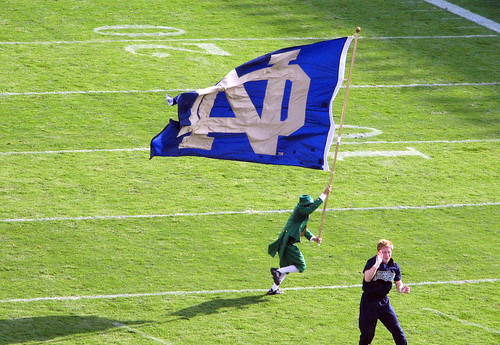 Yet, it seems that once again Notre Dame’s candidate had taken the liberty to embellish his achievements. Though NYU acknowledged O’Leary had been a student there, their records indicated that he had never earned a graduate degree.
Yet, it seems that once again Notre Dame’s candidate had taken the liberty to embellish his achievements. Though NYU acknowledged O’Leary had been a student there, their records indicated that he had never earned a graduate degree.
Amazingly, these fabrications had been part of O’Leary’s resume since 1980 when he had filled out an application for an assistant coach position at Syracuse University. These concoctions had never been truly scrutinized until his appointment as head coach at one of America’s most storied institutions.
A stunned national sports audience read with great chagrin of O’Leary’s foibles and their effects on his coaching career. Elders at the time noted that once again ethical shortcomings in one’s youth had come back to not only haunt, but perhaps in this case, even destroy a man’s career.
At the time, much of George O’Leary’s amazing fall from grace was seen as a snapshot of what is wrong with collegiate athletics. O’Leary saw it differently, blaming it on ‘resume padding.’
In submitting his resignation to Notre Dame, one he had been asked to submit, he acknowledged: “In seeking employment I prepared a resume that contained inaccuracies regarding my completion of course work for a master’s degree and also my level of participation in football at my alma mater. These misstatements were never stricken from my resume or biographical sketch in later years.”
A Lesson for All
Any student thinking of falsifying his or her academic record or resume would do well to give careful consideration to the story of George O’Leary. There are numerous lessons that can be learned from the situation, not the least of which involved many, many years of hard work all undone in a matter of days because of ethical transgressions committed at an early age.
 Ironically, at the time, employers did not initially check on O’Leary – the checks were actually done by reporters seeking not to confirm or undo, but to report on what was believed to be an interesting and worthy story.
Ironically, at the time, employers did not initially check on O’Leary – the checks were actually done by reporters seeking not to confirm or undo, but to report on what was believed to be an interesting and worthy story.
However, since that time, public institutions began putting fact-checking measures in place. After all, no employer wants to ever be exposed to the public level of embarrassment the University of Notre Dame was subsequently subjected to.
In response to the earlier comment from one of readers, “What would happen if I were to just say that I had the degree on my resume? Anyone ever tried that? How many employers actually check?”
The answer is yes at least one notable person has tried it. And the second answer is yes, many employers now check.
As to “What would happen if I were just say that I had the degree on my resume?” Well, this story clearly reveals that blatant falsifications can come back to haunt you at the most inopportune time imaginable.
Flickr photos courtesy of MDB 28, Glenn and Telethon.
It is likely that at every high school or college graduation ceremony, at some point in time, at least one of the speakers will insist that the secret to a life of fulfillment is to remain true to one’s dreams.
Yet, at the same time, it is also likely that a look towards the audience would reveal at least one adult with a cynical eye dismissing such blatant optimism in a most scornful manner.
Fortunately, however, there are still some students who not only listen to the speaker’s message of hope, they take it upon themselves to test the theory.
The Desire to Make a Difference
 When asked about her involvement in Division I athletics at a high-profile school, Parker Goyer could point to many key lessons from the world of sports: persistence, work ethic, setting goals, and overcoming setbacks. She also could point to the year-round commitment necessary to compete at such a high level and the subsequent time constraints that participation had on her ability to utilize these important skills while being of service to others.
When asked about her involvement in Division I athletics at a high-profile school, Parker Goyer could point to many key lessons from the world of sports: persistence, work ethic, setting goals, and overcoming setbacks. She also could point to the year-round commitment necessary to compete at such a high level and the subsequent time constraints that participation had on her ability to utilize these important skills while being of service to others.
But the year-round commitment to school and to athletics left Goyer little opportunity to travel abroad or to partake in community service. For the 2007 graduate of Duke University, the latter was a big issue.
Inspired by the likes of Wendy Kopp, the founder and CEO of Teach for America and Greg Mortenson, a one-time mountain climber who has dedicated his life to building schools in remote parts of Pakistan and Afghanistan, Goyer chafed at the lack of opportunities student-athletes had to be of service to others.
Recognizing that there had to be other collegians with similar sentiments, Goyer came up with a bold plan, one that would allow student-athletes to utilize their skills and talents to help serve young people in countries less-developed than her own.
Coach for College
 Now in her first year at the Harvard Graduate School of Education, Goyer conceived of the “Coach for College” program while visiting Vietnam and Belize the summer following her graduation. While visiting those countries, Goyer saw first hand an underdeveloped educational system and countless young people who simply did not have a cadre of role models to help lead them.
Now in her first year at the Harvard Graduate School of Education, Goyer conceived of the “Coach for College” program while visiting Vietnam and Belize the summer following her graduation. While visiting those countries, Goyer saw first hand an underdeveloped educational system and countless young people who simply did not have a cadre of role models to help lead them.
The former Duke tennis player saw an opportunity, a true win-win in the proverbial sense. If she could create a program that would allow American student athletes to put their athletic lessons to work in real life settings, the youngsters in some of the world’s poorer countries would not only have access to some key role models, those youngsters would have the chance to learn some valuable skills as well.
“A major guiding principle of the Coach for College program is that student-athletes have great traits they develop through sports,” explains Goyer. “But they don’t always apply these traits which they perfect on the playing field in other settings.”
“I wanted American student-athletes to realize that, by virtue of being highly-skilled sports players in some of the best higher education institutions in the world, they have tremendous power to make a difference.”
Program Launched in Summer of 2008
With a goal of utilizing sports to teach key life lessons, Goyer envisioned a group of college athletes giving up some of their summer time to help the youngsters in underdeveloped countries learn “critical thinking skills” and promote “excitement about academics.” While the need for funds was significant and the task of raising half-a-million dollars a daunting one, the 23-year-old never doubted the worthiness of her concept.
 “A lot of people were skeptical at first and thought that I was too young, that this was too big of an idea, and didn’t know if I could pull it off,” reveals Goyer. “I think I was able to succeed by setting concrete goals, identifying key supporters early on, and using their advice and support to make steady progress towards my goals, one step at a time.”
“A lot of people were skeptical at first and thought that I was too young, that this was too big of an idea, and didn’t know if I could pull it off,” reveals Goyer. “I think I was able to succeed by setting concrete goals, identifying key supporters early on, and using their advice and support to make steady progress towards my goals, one step at a time.”
Adding to her belief in the program concept itself, the idea of teaching life lessons through the world of sports, Goyer found herself drawing on the lessons she had taken from being a competitive athlete.
“Setting up the Coach for College program reinforced the value of sports in transmitting key life skills. I found myself drawing upon some of the same skills – persistence, work ethic, setting goals, overcoming setbacks, etc. — that I had used to make progress as a tennis player.”
Putting her organizational, goal-setting and perseverance skills to the test, Goyer secured more than $480,000 to fund the first two years of her concept. The monies came from two Atlantic Coast Conference rival colleges, Duke and the University of North Carolina, as well as the National Collegiate Athletics Association, the U.S. State Department, and a number of other individual and corporate donors.
With funding secured, this past summer student-athletes from both Duke and UNC made their way to rural Vietnam for the first ever “Coach for College” sessions. In addition, bilingual students from Can Tho University also led the training that involved the games of badminton, basketball, soccer, tennis, and volleyball.
 A key component of the program included the building of a five-in-one sports court, with lines for the sports that would be taught in the program. Constructed on the grounds of the middle school, local workers built it using money from the funds Goyer had raised. The permanent construction meant that the Vietnamese children could continue, during their school year, to play the sports they had been introduced to by the Coach for College program that summer.
A key component of the program included the building of a five-in-one sports court, with lines for the sports that would be taught in the program. Constructed on the grounds of the middle school, local workers built it using money from the funds Goyer had raised. The permanent construction meant that the Vietnamese children could continue, during their school year, to play the sports they had been introduced to by the Coach for College program that summer.
Working alongside their Vietnamese counterparts, the American student-athletes conducted two three-week units featuring a number of sports clinics and classroom lessons to 200 children ages 11-15. The group also managed to blend in Vietnamese high school students who benefited from the program but in turn served as next step role models for the younger children.
The basic lessons taught within the sports clinics were reinforced by academic offerings that featured the application of sports to Health/Biology, Physics, English, Leadership, and Education/Psychology. The program, free to interested children, provided a wealth of prizes/gifts based upon outcomes in team-based sports and academic competitions as well as each student’s completion of the various academic modules.
The Translatable Goals of Athletics
Wise beyond her years, Goyer created a program that offered lessons for both groups, the American students who accompanied her and the youngsters in Vietnam that participated in the clinics. Both groups saw first hand that teamwork, sacrifice, hard work, and determination often form the basis for success in many other settings.
 “The overarching idea is that skills like perseverance, determination, setting and achieving goals, and overcoming setbacks, all of which can be learned through sports, are the keys to success in education as well,” notes Goyer. But as for the lessons for her fellow athletes, the Coach for College founder was unequivocal as to what came first for her.
“The overarching idea is that skills like perseverance, determination, setting and achieving goals, and overcoming setbacks, all of which can be learned through sports, are the keys to success in education as well,” notes Goyer. But as for the lessons for her fellow athletes, the Coach for College founder was unequivocal as to what came first for her.
“Personally, my primary goal is to help the middle school youth, and I intended the benefits to the coaches, both the American student-athletes and Vietnamese college students, to come as a natural by-product of their participation in the program.”
Still, Goyer attempted to work on the highest plane imaginable. More than simply providing Vietnamese youngsters with a cadre of role models, Goyer sought to inspire these 11-15-year-olds to consider higher education. To further that notion, the Coach for College concluded every daily camp session with a 30 minute class on the topic.
Following One’s Dream
Perhaps most importantly, the goal-setting Duke graduate has established other possible plateaus for her concept. Her vision is to see the program “partner with professional athletes” as well as “sports-related companies such as Nike.”

In addition, Goyer is set to invite other “universities which are athletic rivals to sponsor Coach for College programs at new sites.” The plan includes “utilizing the existing conference structure present in intercollegiate athletics” with the idea that each conference could perhaps sponsor a program in one particular region of the globe.
Once upon a time, Division I student-athletes may have had little to no chance to travel abroad or engage in meaningful service to others. But thanks to one young woman with a vision and a thorough understanding of the lessons that athletics can offer, student-athletes with a service mind set now have a concrete model to follow.
Editor’s Note: On Saturday, November 22nd, Parker Goyer was one of 32 Americans selected for a Rhodes Scholarship. Valued at $50,000 per year of study, the scholarship will enable the Coach for College (CfC) founder to study comparative international education at Oxford. Her hope is to learn more about the different education systems, academic curricula, and personnel of different countries to determine which ones will provide the best fit for the CfC program moving forward.